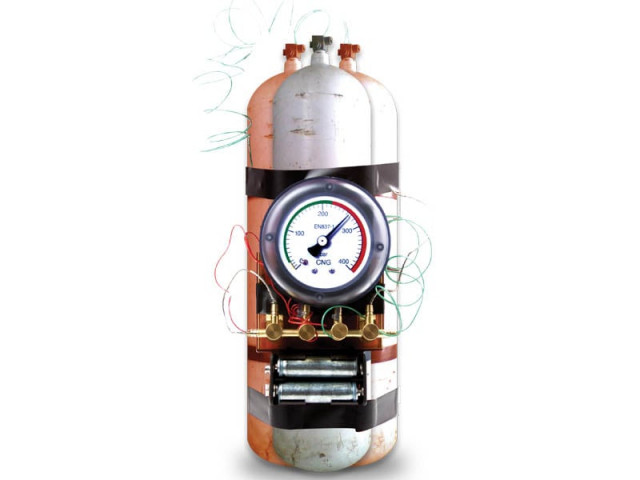CNG-related accidents: Preventive policy stuck in red-tape
OGRA officials say their organisation simply functioned as a regulator and could not devise any policy or law.

OGRA officials say their organisation simply functioned as a regulator and could not devise any policy or law. DESIGN: FAIZAN DAWOOD
Saturday’s tragedy in Gujrat may have been averted had the authorities drafted a legal framework to prevent such incidents. Despite recognising the urgency of the matter, the perennial bureaucratic bottlenecks hampered a policy to regulate the use of compressed natural gas (CNG) in public transport.
Attempts to amend the standard operating procedure regarding CNG-related accidents began as early as last year, sources revealed to The Express Tribune.
In December 2012, a task force formed by the petroleum secretary finalised its proposals to minimise the chances of CNG cylinder blasts in vehicles.
It authorised the Hydrocarbon Development Institute of Pakistan (HDIP) to finalise the installation of CNG cylinders in vehicles following a technical study. The task force decided that the public transport shall have genuine third party/passenger insurance.
Even more recently, the petroleum ministry forwarded a letter to the Oil and Gas Regulatory Authority (OGRA) two months ago, asking it to draft a law in order to prevent CNG-related accidents in consultation with stakeholders and provincial departments, and keeping in view the preliminary work done over the matter.
“OGRA may like to consider the amendments proposed by HDIP in the standard operating procedure on CNG related accidents in public service vehicles,” read the letter sent to OGRA by the petroleum ministry.
“It is of essence that a proper legislation on the safe use of CNG in public service vehicles … is drafted as per the advice of the ministry of interior,” it added.
However, OGRA officials maintained that their organisation simply functioned as a regulator and could not devise any policy or law. It is up to the federal government to devise a policy or legislation … OGRA can only enforce it once it has been enacted, they maintained.
OGRA officials say the regulator has prepared its own recommendations to prevent CNG-related accidents. OGRA has recommended that only two CNG cylinders be allowed in light and a maximum of four cylinders be allowed in heavy commercial transport vehicles. Private vehicles should not be fitted with more than one cylinder.
According to sources, the HDIP has also recommended a ban on installing more than two cylinders in public buses, wagons and other vehicles. The institute has also proposed a ban on installing CNG cylinders on the rooftops of these vehicles.
Published in The Express Tribune, May 26th, 2013.



















COMMENTS
Comments are moderated and generally will be posted if they are on-topic and not abusive.
For more information, please see our Comments FAQ